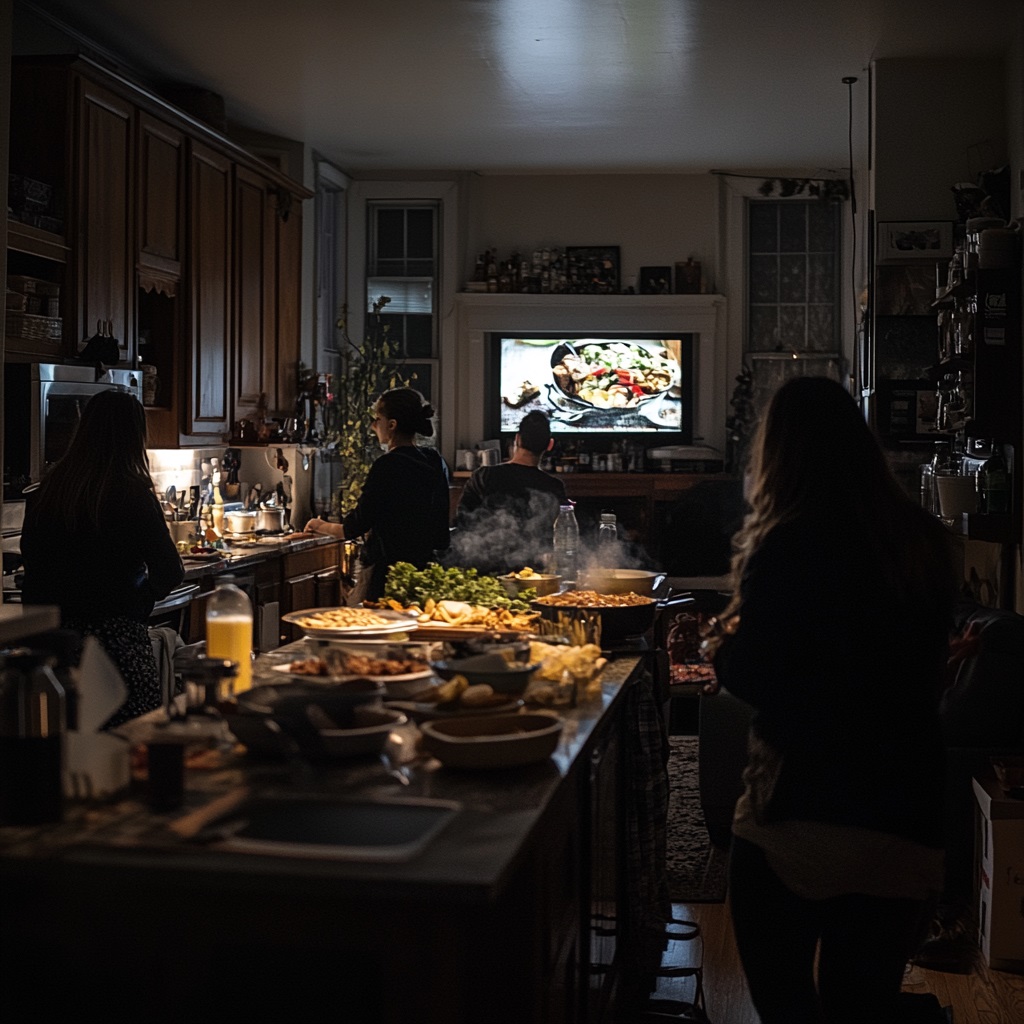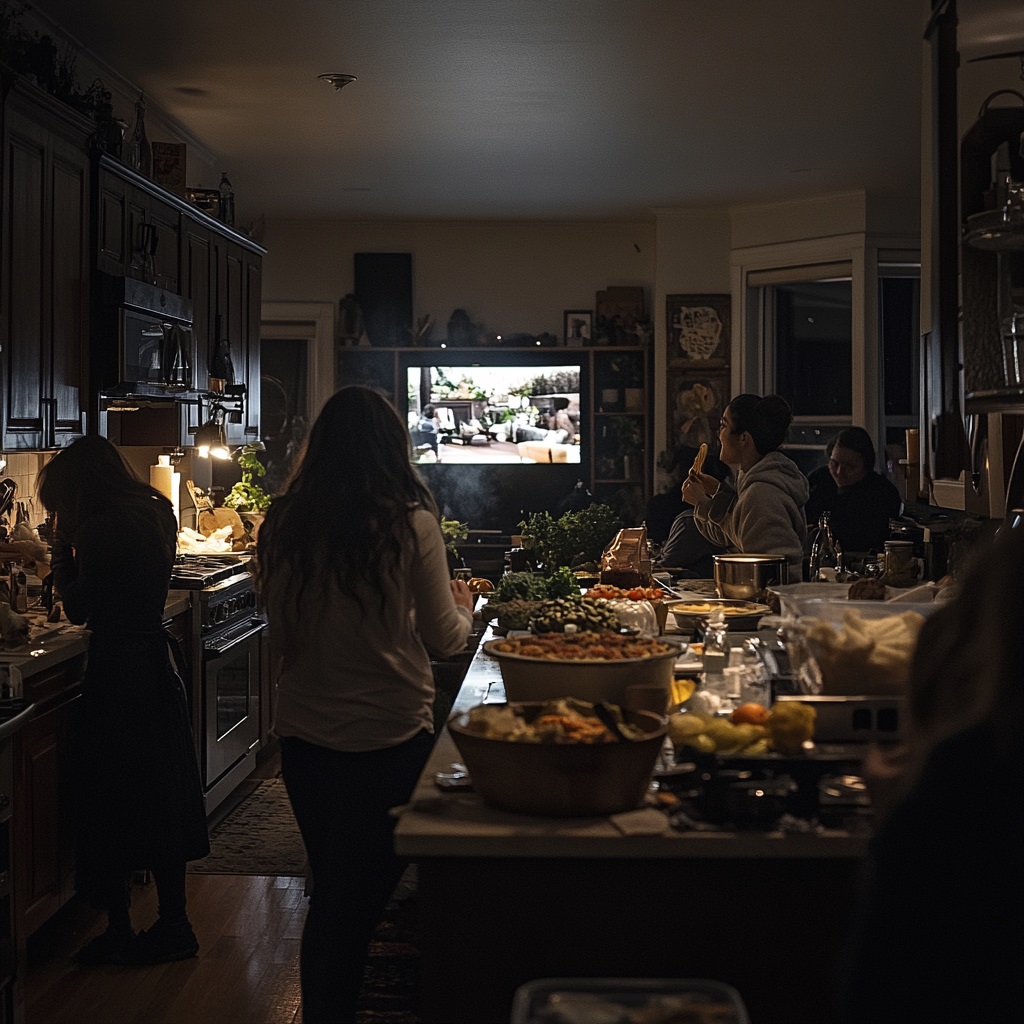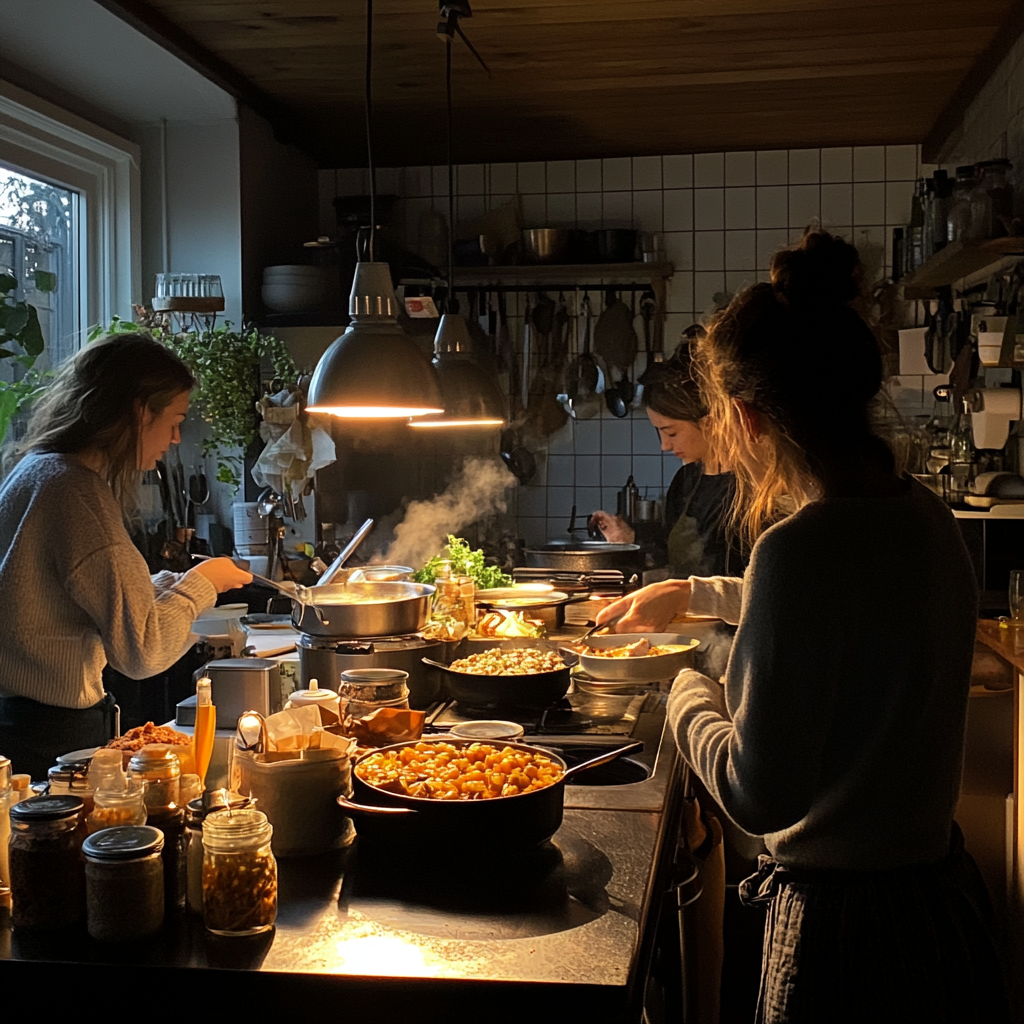My Boyfriend Promised To Break His Family’s Sexist Traditions, But Now I’m the One Who Walked Away
When Ryan first invited me to his family’s annual barbecue, I was excited. I’d been dating him for almost a year, and I knew this was a big step. Meeting the family, getting to know the people who raised him—it felt like a glimpse into our future. I spent the morning baking cookies, making sure I had something to bring, a small gesture of gratitude. I couldn’t wait to make a good impression.
Everything seemed perfect at first. The sun was shining, the smell of barbecue filled the air, and the house buzzed with the usual excitement of a family get-together. Ryan was beaming as he introduced me to his parents, his cousins, and his aunts and uncles. For a while, I thought I fit in just fine. His mother complimented my dress, his father shook my hand with a firm grip, and everyone seemed welcoming enough.
Then I noticed something. All the women were in the kitchen. Not just prepping a few things, but fully immersed in the cooking while the men lounged outside, laughing, drinking beer, and watching sports.

It didn’t take long to realize that this wasn’t some sort of spontaneous decision—it was *expected*. The women were working away while the men were served, almost like they were royalty.
I kept quiet at first, trying to push down the sinking feeling in my stomach. Maybe it was just how his family operated, I thought. Maybe it was no big deal. But it didn’t sit right with me. It felt so… backwards.
At one point, Ryan’s aunt came over, wiping her hands on an apron, smiling at me as she asked, “Jess, why don’t you come help us in the kitchen? We could use an extra pair of hands.”
I froze. Was she serious? Was I expected to just fall in line with this? The men were doing nothing, and yet here I was, being summoned to the kitchen simply because I was a woman. My eyes darted to Ryan, silently begging him to step in, to say something, to show me that he *understood* how wrong this was. But he didn’t.
“Uh, I’m not much of a cook, actually,” I said, trying to keep my voice steady. “I was hoping to just hang out with everyone.”
His aunt’s smile faltered. Just for a moment. But I saw it. “Oh, everyone does their part here,” she said lightly, though the edge in her voice was unmistakable. “The men grill, the women do the rest. It’s tradition.”

I felt my heart sink. There it was—the unspoken rule that women in Ryan’s family were supposed to serve, no questions asked. I turned to Ryan again, hoping—*praying*—that he’d say something. He just shrugged.
“It’s just how things are,” he muttered, as if that was supposed to make it better.
My heart dropped into my stomach. I couldn’t believe it. The man I thought was so progressive, so loving, was standing there, silently condoning this blatant sexism. And the worst part? He expected me to go along with it. I didn’t. I couldn’t.
“I’m sorry,” I said to his aunt, trying to sound polite, but the anger was bubbling up inside me. “I don’t agree with this.”
Her eyes widened, but she didn’t say anything. She just nodded stiffly and went back to the kitchen.
The rest of the day felt like a nightmare. I could feel the eyes on me, the whispers behind my back. Ryan’s mother and aunts kept glancing at me with thinly veiled disapproval, while the men carried on as if nothing had happened. I felt like I was being judged—*punished*—for not conforming to their ridiculous expectations.
And Ryan? He barely spoke to me after that. He kept his distance, laughing with his brothers and dad while I sat there, feeling like an outsider in a family that would never accept me for who I was.

On the way home, the silence in the car was deafening. I couldn’t hold it in anymore. “Do you even realize what just happened back there?” I snapped, my voice shaking with anger. “They treated me like I was supposed to serve them, like I didn’t matter except to be some housewife who cooks for everyone while they sit around doing nothing.”
Ryan frowned, glancing at me briefly before looking back at the road. “It’s just tradition, Jess,” he said quietly. “It’s how things have always been.”
My jaw clenched. “And you’re okay with that?”
He didn’t answer right away. “I mean… it’s just how my family does things. Can’t you just go along with it? It’s not a big deal.”
Not a big deal? I stared at him, my heart pounding in my chest. How could he not see? How could he not understand how dehumanizing it felt to be reduced to my gender, to be expected to fulfill a role I never signed up for?
“I’m not going to be that person, Ryan,” I said, my voice cracking. “I’m not going to be the woman who falls in line because your family expects me to. If you can’t stand up for me—if you can’t see how wrong this is—then I don’t know if this can work.”
The silence that followed was suffocating. I could feel the weight of my words hanging between us, threatening to pull us apart. And maybe that was for the best.

The next few days were tense. Ryan avoided the conversation, and I was left wondering if this was the end. I couldn’t stop thinking about how easily he’d sided with his family, how little he’d cared about how that tradition made me feel.
Then, one evening, he showed up at my apartment, looking like he hadn’t slept in days. “Jess, I’m sorry,” he said, his voice low and hoarse. “I should have said something. I should have stood up for you. You were right.”
I stared at him, not sure if I believed him yet. “And what about your family?”
He sighed, running a hand through his hair. “They’re not going to change. I know that. But I can. I don’t want to lose you over this. I don’t want to be like them.”
His words hung in the air, and for the first time, I saw the struggle in his eyes. He was torn between his family’s expectations and what was right, between the way things had always been and the future he wanted with me.
I took a deep breath, my anger slowly melting away. “I just need to know that you’re with me, Ryan. That you’ll fight for us, even when it’s hard.”
“I will,” he promised, his voice firm. “I’ll fight for you.”
I temporarily believed in him that he would protect me from this damn patriarchal tradition. I believed that our love was strong enough to overcome this challenge.

One month later, his mom invited us over for another family dinner, and I hesitated at the beginning. I wanted to believe Ryan. I wanted to believe that this time, it would be different. But deep down, I was afraid. Afraid that nothing would change, that I would be standing in the kitchen, expected to play the role of dutiful girlfriend, just because that’s how his family did things.
Against my better judgment, I agreed because Ryan promised to stand on my side. When we arrived at his parents’ house, everything seemed normal at first. The usual chatter, the smiles, the smell of food already wafting from the kitchen. I stayed by Ryan’s side, hoping that this time, things would be different.
But it didn’t take long for the cracks to show. “Jess, why don’t you help us with the salad?” his aunt called from the kitchen.
I froze. Here we go again. I glanced at Ryan, hoping he would step in like he promised. I needed him to say something, to tell them that I wasn’t there to serve, that this wasn’t the 1950s anymore. But instead, he looked away, pretending not to notice.
“I’m sure Jess is tired,” his mom added, but it didn’t sound like an excuse to let me off the hook. It sounded more like a passive-aggressive nudge.
The tension in the air was thick. The female relatives all expected me to get up and join them in the kitchen, while the men sat in the living room, oblivious or, worse, indifferent. I was waiting for Ryan to keep his word, to make good on his promise.
But he didn’t. He avoided my eyes, keeping his focus on the TV, laughing at some joke his brother had just made. I kept staring at him, willing him to turn around and say something. Anything. But he never did.
I felt a knot tighten in my chest, the disappointment growing heavier with every passing second. He wasn’t going to do it. He wasn’t going to stand up for me. Despite all his promises, despite everything he said, when it came down to it, he couldn’t break free from his family’s expectations.

I didn’t say a word. I simply stood up, my heart pounding in my chest, and walked to the door. My heart is heavy with disappointment. I could hear the sound of laughter from the living room. Ryan hadn’t said a word. The sting of his silence was worse than anything his family had done. I had given him the chance to prove that our relationship was built on mutual respect, that I wasn’t just another woman in his family’s eyes.
I paused at the doorway, hoping for a miracle. Just one word from him—one acknowledgment of what I was feeling—and maybe we could work this out.
“Jess, wait.” I turned, my heart pounding, but when I met Ryan’s eyes, they were full of frustration, not understanding.
“Can’t you just… go help them for a little while?” he asked, his voice a mix of irritation and weariness. “It’s not that big of a deal. This is just how things are in my family.”
I felt my chest tighten. There it was. The words I dreaded. It wasn’t just that he wasn’t going to stand up for me—it was that he didn’t even see the problem. He didn’t understand why it hurt, why it mattered.
I took a deep breath, trying to keep the tears from spilling over. “Ryan, you promised me things would change. You promised we’d do things differently. I’ve stood by you, but you can’t expect me to keep bending to your family’s traditions when they go against everything I believe in.”
He sighed, rubbing his temples as if this was all too exhausting for him. “Jess, you’re making this bigger than it needs to be. Can’t you just let it go? For me?” For him. Always for him.
I shook my head, my resolve hardening. “No, Ryan. I can’t keep sacrificing my values for your comfort. I’ve done it enough, and look where we are.”
His eyes flashed with anger. “So what, you’re leaving over this? Over some outdated tradition that doesn’t mean anything?”
I took a step closer to him, my voice steady now. “It means everything, Ryan. It’s about respect. And if you can’t see that, then maybe you don’t really know me at all.”
I could see the conflict in his eyes, but he didn’t say the words I needed to hear. He didn’t try to change my mind. He didn’t fight for me.
“Fine,” he muttered, turning away, “if that’s how you feel.”
I stood there for a moment, letting his words sink in. He wasn’t going to change. Not for me, not for anyone. And maybe he never would. I walked out of the house, the cool evening air hitting my face as I stepped onto the porch. I didn’t look back this time. I didn’t need to.
As I made my way down the street, I realized something—this wasn’t just the end of our relationship. It was the beginning of something better. For me.
I had always thought that love was about compromise, about finding a way to make things work. But sometimes, love means knowing when to walk away. When to stop compromising your own worth for someone else’s comfort.
And as I left Ryan and his family’s outdated traditions behind, I knew I was finally choosing myself. Choosing my values, my voice, and my future. In the end, I wasn’t the one who walked away from love. Ryan was. And that was his loss, not mine.

